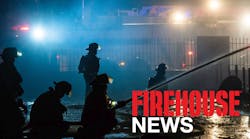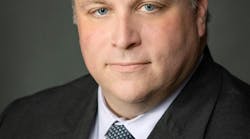Joseph Celentino at Courthouse News Service reports that four firefighters cannot intervene in a class action that resulted in a $30 million judgment against Chicago for a discriminatory civil service examination, the United States Court of Appeals for the Seventh Circuit ruled.
The federal appeals court slammed the would-be intervenors for trying "to upset the judgment and improve their own fortunes at the expense of other members of the class."
In 1995, the city administered a written examination to 26,000 firefighter applicants. Those who scored above a 65 were rated "qualified," but the department considered only "highly qualified" candidates who scored above 89.
From 1996 to 2001, the city hired 11 groups of applicants, choosing randomly from the "highly qualified" pool. In a subsequent class action, a group of unsuccessful "qualified" applicants alleged that the cutoff at 89 had a disparate impact on black candidates.
Blacks made up just 11.5 percent of the "well qualified" pool, though they accounted for about 37 percent of Chicago's population in 2000.
Eventually the case went to the Supreme Court, which reinstated a judgment for the firefighters in 2010. That decision held that the limitations period starts anew in disparate-impact litigation whenever the employer uses the faulty test to make hiring decisions.
It also reduced the number of class members from 132 to 111, who ultimately split $30 million damages and were offered jobs. The four individuals who recently tried to intervene have been working as Chicago firefighters since 2005 after the city randomly selected them from the "qualified" pool.
They allegedly thought that the resolution of this case would bring them extra seniority, pension credits or back pay, but U.S. District Judge Joan Gottschall said their motion to intervene came five years too late. She said each of the intervenors knew, or could have known, since 2007 that the court had defined the class to exclude hired firefighters. A three-judge panel affirmed on Dec. 17.
Though there was trace of a 2007 order modifying the class definition, the four intervenors are still not entitled to relief, according to the ruling. "In 2007 the district court devised a remedy that gave them (and other persons hired between 2002 and 2006) no relief," Chief Judge Frank Easterbrook wrote for the panel. "The intervenors say that no one told them about this -- but then no one had to."
The law requires notification to class members only of a settlement, not of the final outcome of a suit "fought to the finish." "Members of a (b)(2) class can monitor the litigation, and these intervenors did just that when attending oral arguments in the Supreme Court and this court," Judge Easterbrook wrote. "They could have asked to see the judgments entered in 2007 and 2011 but did not."
The decision also defends limiting damages to unsuccessful applicants. "Applicants hired between 2002 and 2006 suffered at most a delay in employment, while those never hired suffered a greater injury," Judge Easterbrook wrote. "The intervenors have been on the payroll since 2005, receiving salary and accruing seniority; the other class members lack those benefits. . . . A judge properly could conclude that the remedy should be concentrated on the never hired applicants rather than be shared with those who had been enjoying salary and accruing seniority, and who might not have been injured at all. To repeat: given random selection, the intervenors might have been hired in 2005 or later, or not hired at all."
Chicago now uses a pass-fail test to screen applicants. A copy of the Opinion in Lewis, Jr., et al. v. City of Chicago, Illinois, No. 12-2845 (7th Cir.), is available at: http://www.courthousenews.com/2012/12/18/chiff.pdf
Class Action ReporterCopyright 1994 - 2013 Bankruptcy Creditors' Service, Inc. and Beard Group, Inc.All Rights Reserved






